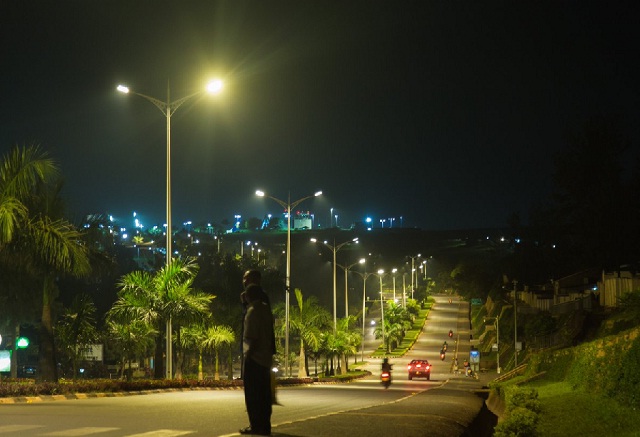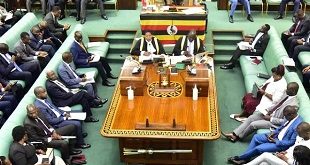
How political calculations have shaped the destinies of Kampala and Kigali
THE LAST WORD | Andrew M. Mwenda | On Sunday April 2nd, I went running in Kigali from Serena Hotel to the airport at Kanombe and back a total of 20km. It was a comfortable and relaxing run. The streets were crisp clean and not a single pothole on them. The boulevards were well done with meticulously pruned flowers and well-tended palm trees. The sidewalks for pedestrians were well kept and smooth for my run. The city gardens near and far had perfectly mowed lawns. I left Serena at 5.30am when it was still a bit dark and all the street lights worked properly. The traffic lights are all digitised and counted the time by the second.
For a person of my chronic allergies to smoke, soot, dust and car fumes, I was relieved of my anxieties. The clean air allowed me to run at good speed without coughing. Because of the pedestrian sidewalks, I felt safe as I ran on streets without having to compete with cars and boda bodas for the same space. And, of course, given the security environment in the city, I felt secure to run without a stick for fear of thugs who could mug me. The experience brought me a sense of pride to be an African. For the rare time on our continent, I was in an African country with city infrastructure as good as one can find in Dubai, Singapore, Paris and Vancouver.
As all this pride lifted my spirits, I was also overwhelmed by a deep sense of shame, then anger, a feeling of defeat and resignation. I run on the streets of Kampala three times a week the same 20km. I suspect I appreciated the beauty, cleanliness and order of Kigali because the opposite holds true of Kampala: dirty, dusty (or muddy, depending on the season), insecure, potholed, with garbage strewn all over the streets and masses of human beings having to compete with ruffian mini-bus drivers and chaotic boda boda riders for the same potholed dusty or muddy spaces Kampala is a scale of the first degree. How can we fail so miserably?
Don’t get me wrong! Kampala has an amazing social and intellectual life. The people are fun. But its physical state is despicable to boot. It is not a city but a village. I have visited Mogadishu and even after 30 years of continuous civil war and lack of a central government, its roads compete favourably with those in Kampala. It could have been Samora Machel or Amilcar Cabral or Frantz Fanon or Fidel Castrol or Mao Zedong who said shame is a revolutionary sentiment. I pray that all of us Ugandans; especially elite Ugandans who pretend to manage this country and its affairs, be ashamed of ourselves for the sorry state of our capital.
And Kigali got me thinking. The beautification of the city is not (just) to please foreign tourists and investors who bring cash into the country. That is one part. It is also not (just) to ensure that citizens of Rwanda live a decent lifestyle. That is an important part of the story as well. But I also I felt that at heart, it also serves an important political function regardless of the subjective motivations of its leaders. It buys government and those who run it a lot of political capital. It creates a sense among citizens that government really cares for their wellbeing. This increases public faith in the state and therefore frees President Paul Kagame from the constant problem of having to appease different elite factions with bribes.
This idea came to me slowly by looking at polling data in Uganda and Rwanda. Ugandans with a decent job, driving a good car, living in a nice neighborhood and spacious apartment form the beneficiaries of the country’s growth. But they are toxic politically despondent and angry at government they express disgust at President Yoweri Museveni and feel government serves little purpose. Yet, a Rwandan who finished university and has gone three years without a job and goes for two days without a proper meal expresses confidence in his government. They may be frustrated but they have faith in government and hope that the future will be bright.
The lesson from this polling data is simple but fundamental: people do not appreciate government based on their personal circumstances alone. Governments that create a sense of moral purpose that their aim is to serve, get a lot of political capital. Governments can enrich individuals and create opportunities for them, but when they fail to demonstrate a commitment to the public good – like roads for example, citizens (even when individually successful) become collectively angry and despondent.
The consequences of this citizen frustration are obvious. First it reduces the legitimacy of government in the eyes of its people. This forces political leaders to rely more and more on buying individual influential and articulate elites in order to placate them. The second coming right behind this is repression. Now government has to spend more resources trying to suppress dissent than building roads. When repression and bribery become the main strategies of governance, then a country finds it hard to build national cohesion. Centrifugal forces seeking to profit from bribery bring more pressure on the state by pressing economic demands using the language of identity.
It is in this context that identitarian politics of ethnic and religious competition gain ground. Elites claim their group is marginalised in order for it to profit from state patronage. This is most pronounced among urban constituencies where populations are multi-ethnic. For we must remember that in spite of its failure to build a functional city, the Museveni government has done some good job on national trunk roads. Its inability to invest in Kampala roads is not a sign of its incompetence but its strategy. It is possible NRM puts little money in Kampala roads because the city does not vote for it.
If this is the case, then we are facing a serious political pathology in the country. Kampala metropolitan area (including Wakiso and Mukono) produces almost 65% of our GDP and 75% of our tax receipts. It is therefore the engine that drives our economy. It makes it possible for the NRM to invest in national trunk roads and pay for all the welfare and patronage it delivers to its rural constituents. In stifling Kampala’s proper functioning, NRM is actually (slowly) undermining the fertility of the goose that is supposed to lay the golden age of its patronage and repressive politics.
*****

amwenda@independent.co.ug
 The Independent Uganda: You get the Truth we Pay the Price
The Independent Uganda: You get the Truth we Pay the Price




Mr Anderea Mujuni M9, it’s very amusing that sometimes you (just) deliberately choose to ignore such hard truths and write as if with intent to test the reasoning of some of us idiots like yours truly, about Tibuhaburwa’s disservice to this once upon a time great nation called Uganda!!
If this is what you still are about this lootocracy Tibuhaburwa’s regime, then I am unconditionally, offering my utmost apologies if I ever hurt you in any one of my many rebuttals in regards to your previous articles!!
Rwanda is a development state, with Kagame overseeing that development. There are consequences for failure, including punishment for underperforming and corrupt officials. Indeed, he has done well to develop Rwanda in-spite of his human rights violations. It’s better to have both development and human rights, but development precedes human rights. Human rights were a consequence of development in many developed countries. However, the way Kagame sometimes suppresses human rights can be ‘beyond and over the limit.’ Turning to Uganda, Mwenda’s deliberate attempt to over look and exclude the core importance of president museveni in explaining failure and largely attribute it to elites makes his arguments lacking. The rot starts from the top. For example, in his last week’s article, “The Tour of Uganda’s Oil Fields” Mwenda attributed the success of oil to president museveni, but failed to see the failure of mismanagement in KCCA or UNRA, Ministries and government officials to the way Museveni appoints his cadres and ignores concerns/ corruption where his cadres are involved. Some officials are appointed with the main aim of helping him to secure private deals.
A fish rots from the head, the saying goes. If the big wigs (without proper police escort) are to be seen waiting out in the traffic, patiently toeing the line, not only will it dissuade the nutters who have turned driving into an exercise of patience, but it will also empower the poor emasculated traffic officers to finally enforce the road codes. I think the big man syndrome is at the heart of many of our problems and I’m inclined to think (more of a prayer) even though MK comports a jocular attitude, I hope and pray under that mask is a person more like his uncle
1.Washington D.C was designed by a French national during the period when George Washington was the President of USA; Kampala was designed by the colonialists basing on the 7 hills of Kampala.What does this mean;every government in power then had an idea of what a city should be like unfortunately for Uganda case ,Obote did little to improve on the sketch of Kampala city yet by Independence most leaders where mentality alert and in control of the economic and social transformation of their nations.
2.Ugandans work so hard to make ends meet once he saves some money the 1st thing that comes to his mind is purchasing a plot of land in either Gayaza,Mukono or Namugongo he will not take the house plan for approval in the name of saving costs.
3.The land system in Uganda partly contributes to the disorganized way in which buildings and roads are built why should local government approve a plan for a house that will be built on a quarter an acre of land?
4.Even if one jogs in Entebbe from Botanical through Bugonga up to the airport they would love that run although it should be done during the day.
5.There is nothing much that the government can do about Kampala’s plan because originally it was a place for the Kabaka and colonialists thats why now, the road network is poor because it was planned for a small population.
6.Its not by accident that some areas in Kampala were designed for the wealthy for example ;Kololo,Bugolobi,Nakasero,Lubowa were meant for a the top notch civil servants while Naguru quarters was for the causal workers up to now; people build houses basing on their social class so government should also show them some love by grading roads for them.
7.During President M7’s era,there are quite a number of posh areas that have come up like Bwebajja,Munyonyo,Seguku,Buwaate,Najjera,Ntinda,Kiira,Kigo they just require support from the government to maintain their roads. I was surprised that there was a golf club in Gayaza and will that alone not psychologically heal the people of Gayaza?
8.You are so right Andrew by the way you look nice with that new look.Government needs to motivate Ugandans by doing little things like building for them well paved roads lit with streetlights.
The back stop with the president, he should offer leaders just us he did in the oil sectors, whether Kampala voted for him or not, he has the responsibility of making Kampala well developed to attract FDI, no investor will come to city which is not friendly to develop, Kigali is clean because Kagame made it is soul responsibility by overseeing all the projects being carried out in the city, he did not condone corrupt even at the slightest act of stealing funds meant for development. Museveni has miserably failed to reign on the corrupt official in is administration, but history will one day judge him harshly.